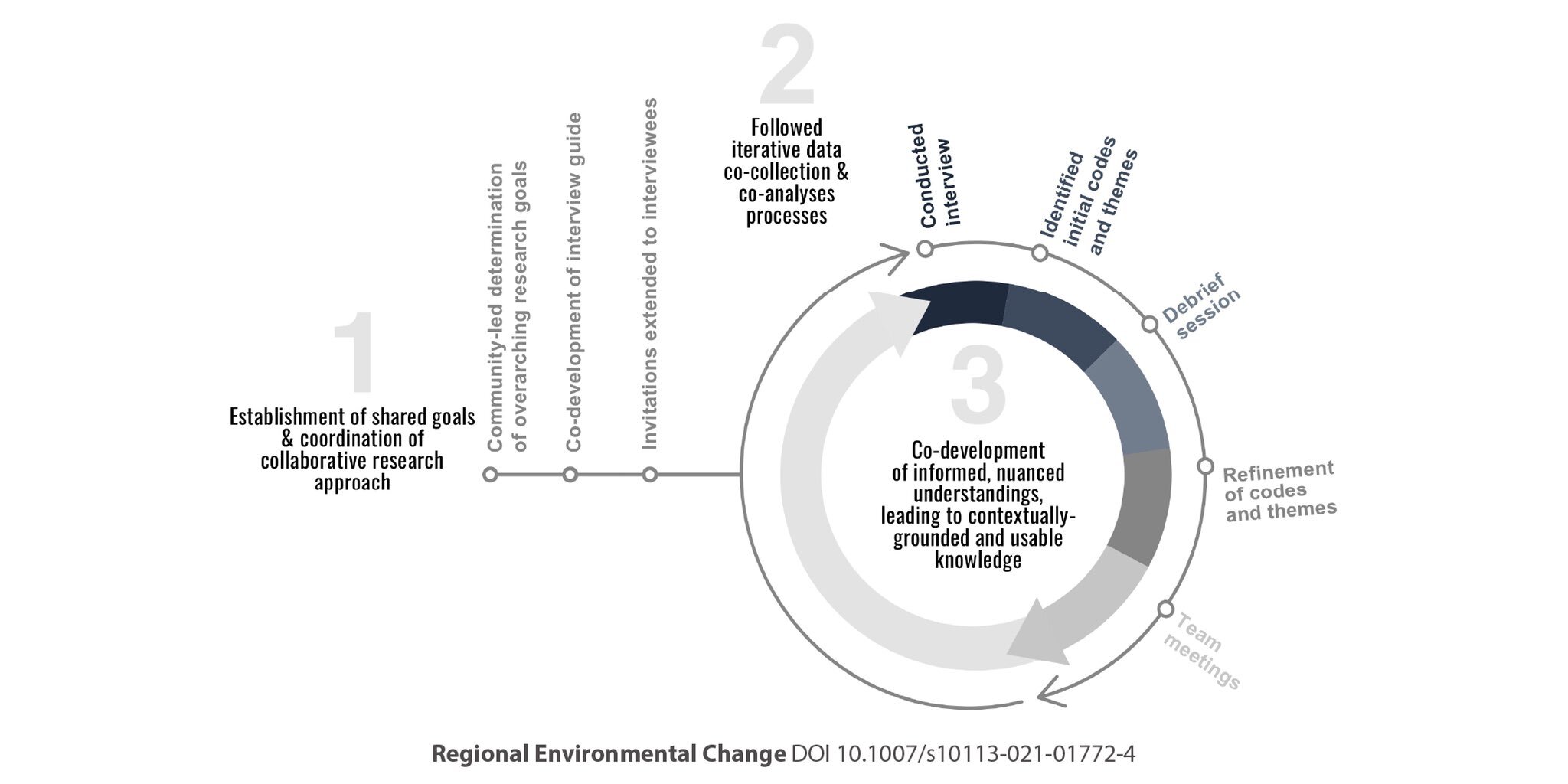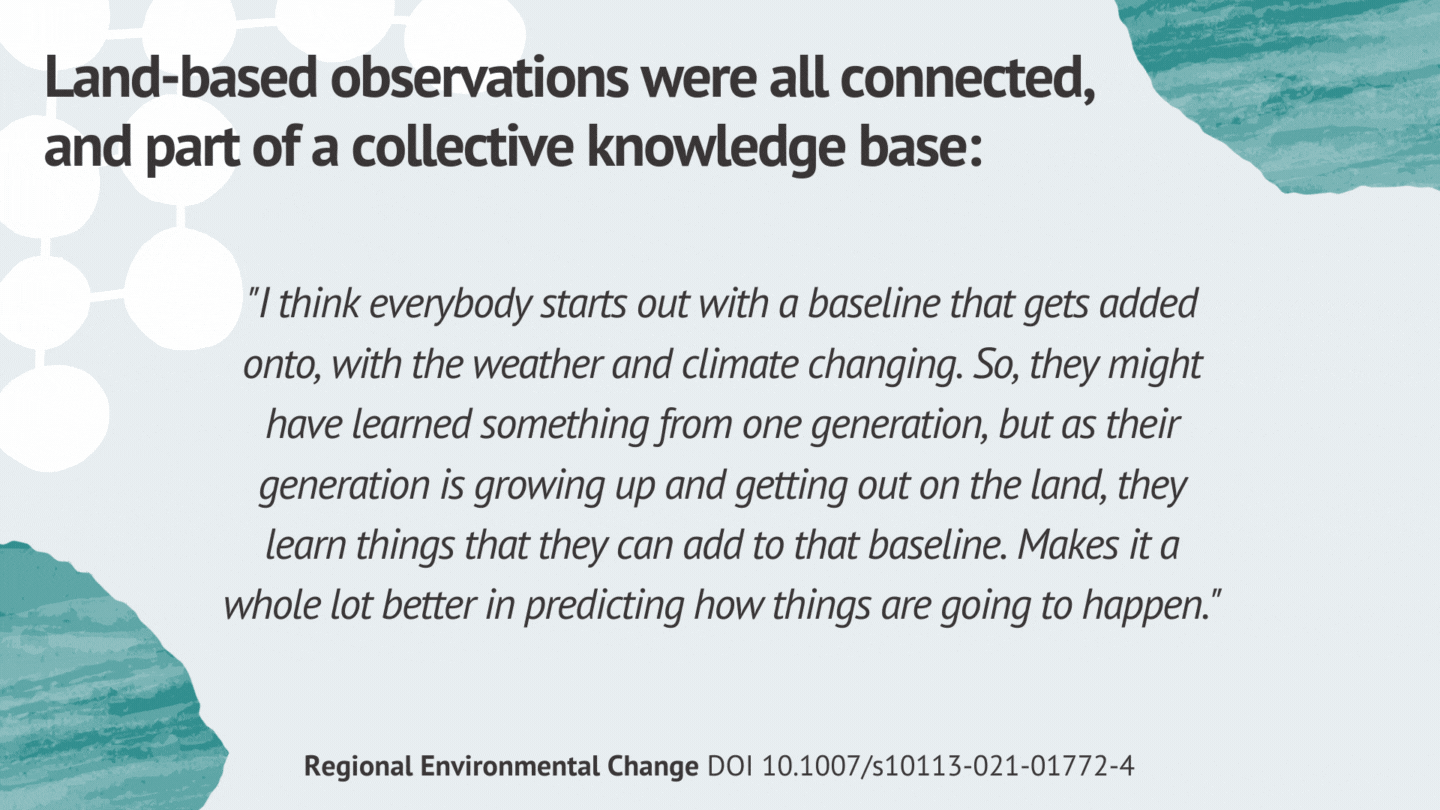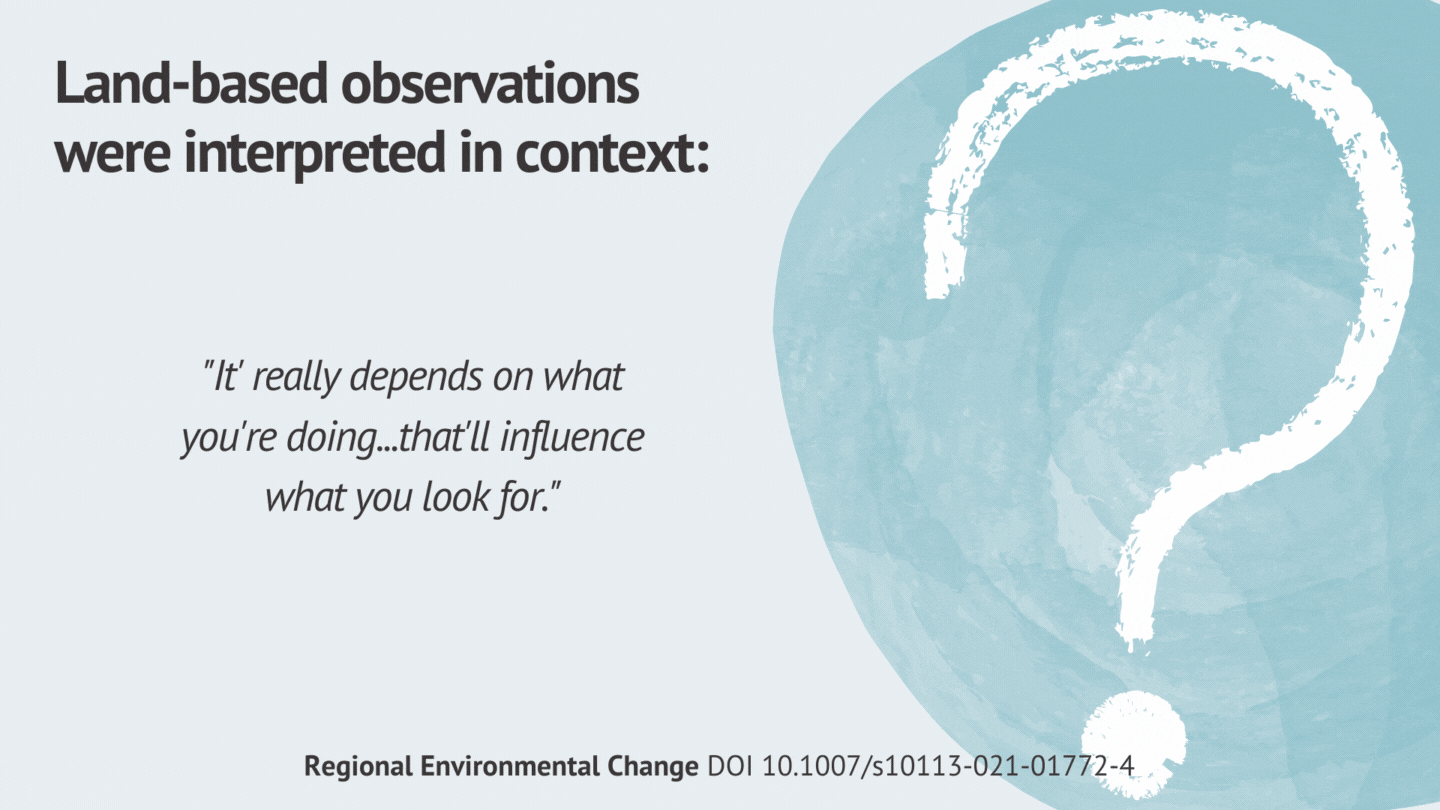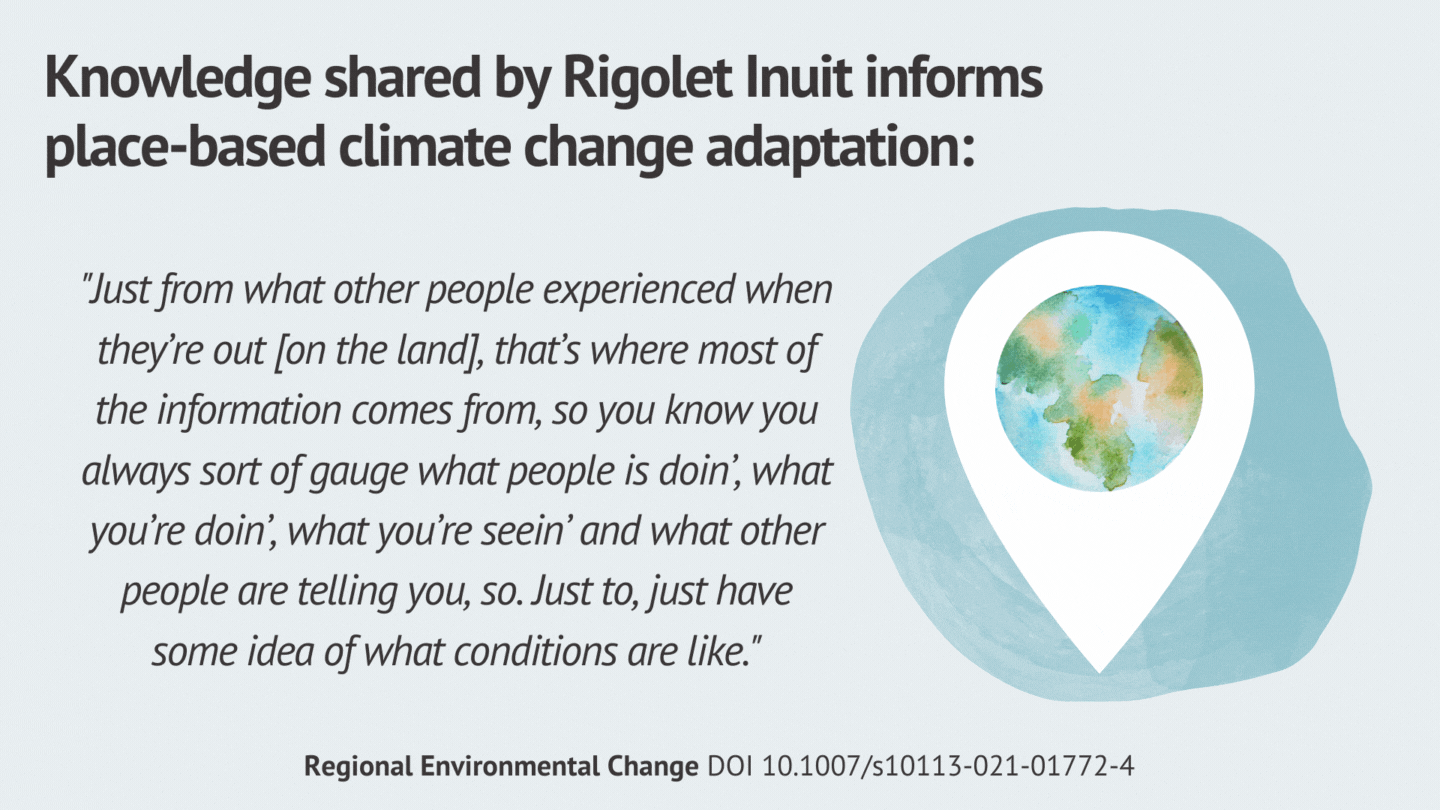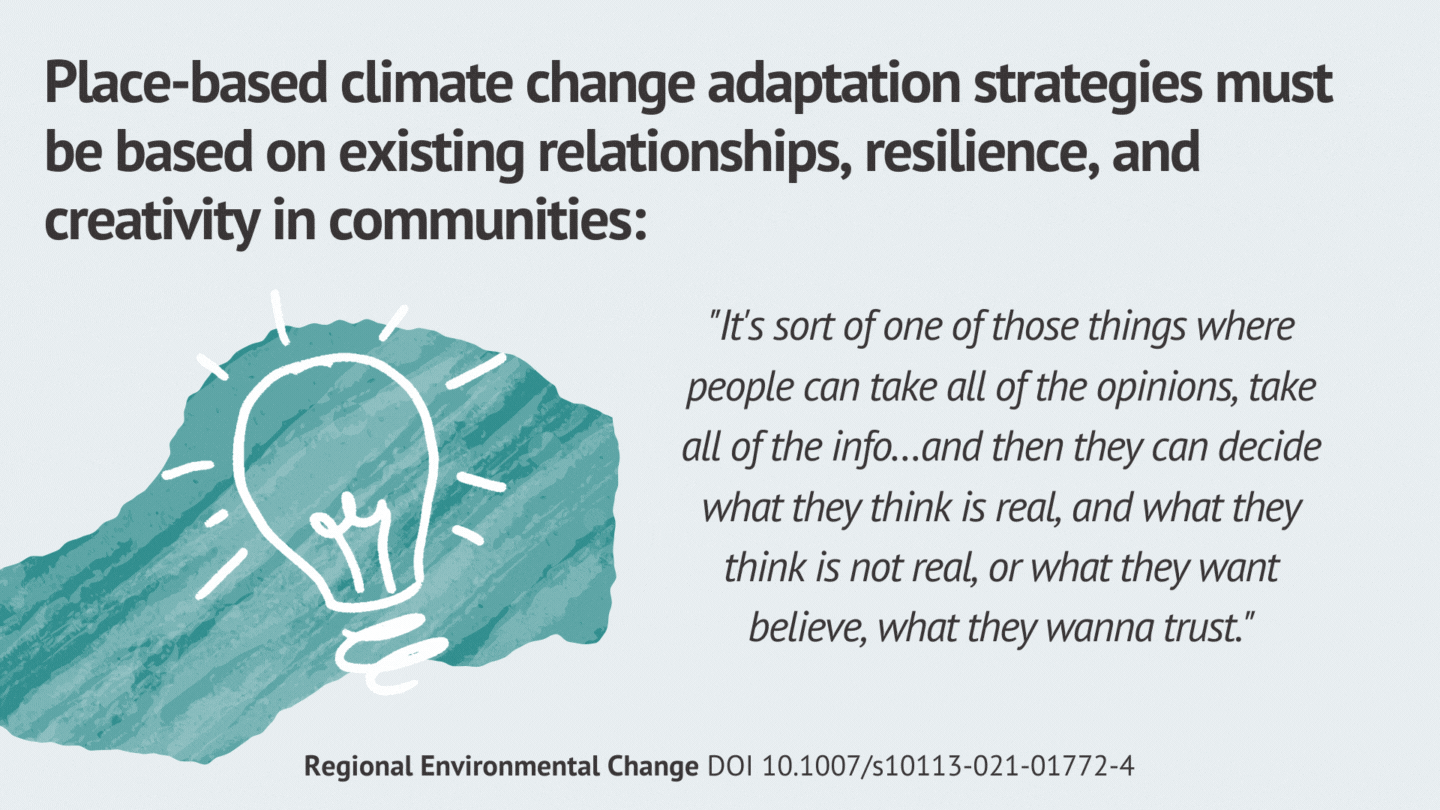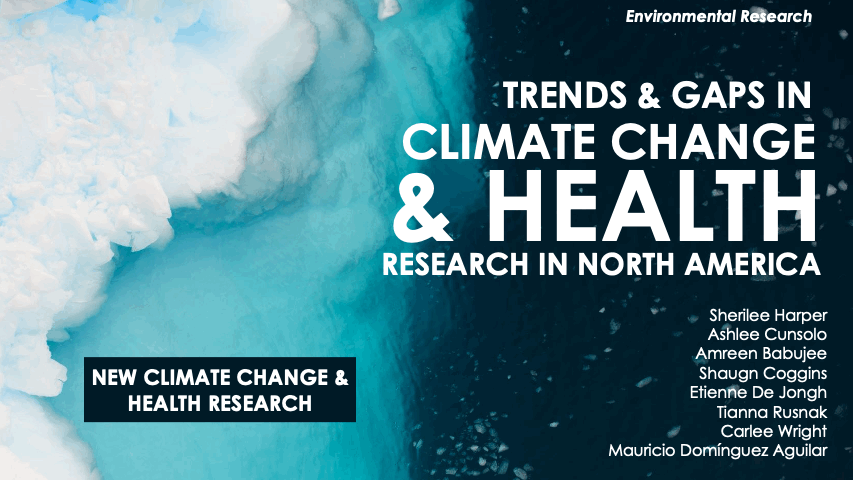The CCGH research group is hiring a Climate Change and Health Assessment Coordinator!
Stephanie Olsen is defending her Master's thesis!
Stephanie Gerend is defending her Masters!
CCGH Goes to the Telus World of Science!
Our research group has the opportunity to engage with the public at the Telus World of Science in Edmonton, for the feature exhibition entitled “Our Climate Quest: Small Steps to Big Change”. We really enjoy getting involved with engaging and educating everyone, but most of all kids! Stephanie and Ellen engaged with kids to figure out which organs in the human body are affected by climate change and what actions they can take to protect their health from climate change. The CCGH is looking forward to the next outreach opportunity!
PhD student, Hannah Bayne, leads the charge on relief in the heat of Edmonton’s summer.
Hannah Bayne composed an opinion piece for the Edmonton Journal about the extreme heat that Edmonton has faced this past summer. With increasing summer temperatures, many people head indoors to avoid exposure. However, those individuals who rent are more vulnerable to extreme heat events and Bayne’s argument is that renters should have the right to relief from the heat. Please read her opinion piece here!
Join our Team! Participatory Climate Epidemiology Position
Post-Doctoral Fellow/ Research Consultant Job Posting – August 2022
New Opportunity: Participatory Climate Epidemiology Post-Doctoral Fellowship or Research Consultant Position
The Climate Change and Global Health Research Group at the University of Alberta, School of Public Health and the School of Arctic and Subarctic Studies at the Labrador Campus of Memorial University are excited to announce an interdisciplinary fellowship or research consultant opportunity in climate change and health projections research.
The Opportunity
This position offers an exciting and unique opportunity to work with an interdisciplinary team of faculty and students at the intersection of climate change, public health, mental health, waterborne disease, environmental science, and social sciences. The successful candidate will work closely with Dr. Sherilee Harper and Dr. Ashlee Cunsolo, in partnership with Dr. Hugo Beltrami at St. Francis Xavier University to work with partners, develop and conduct various research projects, publish research findings, and contribute to innovative knowledge mobilization activities. Specifically, this position engages with a wide range of partners and focuses on quantitative data analysis for climate-sensitive health outcomes in Nunatsiavut communities. The position involves collaboratively building climate-health models with intersectoral and transdisciplinary partners, to examine past impacts and project future impacts under different levels of global warming. The successful candidate will have the opportunity to expand and enhance research skills, work collaboratively with partners, work across disciplines, faculties, and universities, and be offered mentorship and support in a dynamic and engaging environment.
The position will be hired through the University of Alberta as either a Post-Doctoral Fellow or short-term research consultant (depending on the preferences of the candidate) for a 1-year term, with possibility for extension.
Key Qualifications
Applicants should either possess a PhD or be a senior PhD student in epidemiology, health sciences, public health or a relevant social science;
The successful candidate must demonstrate commitment to a high standard of academic excellence and have an interest in, or experience with, climate change research;
Recent experience with quantitative data analysis (using either: Stata and/or R) is required;
Applicants should possess strong project management skills including the ability to multitask and prioritize work with tight deadlines, advance complex projects, and maintain collaborative relationships with colleagues and partners from various disciplines;
Candidates should have strong written and verbal communication skills, with the ability to present complex data in a straightforward way; and
Experience in social or health climate projection research is considered an asset.
The University of Alberta is committed to an equitable, diverse, and inclusive workforce. We welcome applications from all qualified persons. We encourage women; First Nations, Metis and Inuit persons; members of visible minority groups; persons with disabilities; persons of any sexual orientation or gender identity and expression; and all those who may contribute to the further diversification of ideas and the University to apply.
To Apply:
Submit an application including a cover letter, and curriculum vitae to Kelsey Robertson at kerobert@ualberta.ca or through the University of Alberta online portal.
Closing date:
Position will remain open until filled. Review of applications will begin immediately.
New Publication: Climate change and Inuit health priorities
We are pleased to share our new commentary paper recently published in One Earth. This commentary was co-authored by Sherilee Harper (University of Alberta), Dalee Sambo Dorough (Inuit Circumpolar Council), Joanna Petrasek MacDonald (Inuit Circumpolar Council), Ashlee Cunsolo (Labrador Institute of Memorial University), and Nia King (Queen’s University).
In the commentary, we asked: if climate change is the “biggest health threat of the century,” what does this mean for regions experiencing the fastest warming on the planet?
Here are the key messages from our paper:
1) What are the Climate Change key risks to Inuit health?
Some key climate-health impacts include:
Nutrition
Foodborne illness
Waterborne illness
Mental health
Health services
Heat morbidity
Injury and death
Key Inuit Climate-Health Risks Identified
2) What must be done to address climatechange health risks?
We called for Inuit self-determination in climate-health research, response & governance, with a focus on Inuit knowledge & Inuit-led research for a climate-resilient Inuit Nunaat.
Calls to Climate-Health Action
Article citation:
Harper, S.L., Sambo Dorough, D., Petrasek MacDonald, J., Cunsolo, A., & King, N. (2021). Climate change and Inuit health: Research does not match risks posed. One Earth, 4(12), 1656-1660.
Join us for Jamie Snook's PhD defense!
Please contact Jamie for the connection details (see his email address below).
COP26 and the Global Stocktake
Congratulations to PhD Candidate Steven Lam for his recent news story published in the Conversation Canada
In his news story, Steven explores how the world will measure progress on the Paris climate agreement and keep countries accountable at COP26.
Join us for LJ's PhD defense!
New Publication! Evidence-informed policy for tackling adverse climate change effects on health
New Article
Published in PLOS Medicine
In our new article, we examine evidence-informed policy for tackling adverse climate change effects on health.
Here is a summary of the main points in our article:
Effective policy making depends on synthesising and improving the use of existing robust scientific evidence, tackling misinformation, and identifying knowledge gaps to be filled by new research.
A global project organised by the InterAcademy Partnership (IAP) is bringing together evidence from Africa, Asia, the Americas, and Europe to evaluate climate change effects on health and to assess policy priorities for adaptation and mitigation solutions. Project design encouraged inclusivity in assessing research from across disciplines and from diverse geographical and socioeconomic contexts encompassing issues for vulnerable groups (including Indigenous Peoples) and integrating outputs at national, regional, and global levels.
Coordinated policy development approaches across sectors and regions and integration at national–regional–global levels are essential to understand trade-offs, avoid inadvertent consequences, and capitalise on potential synergies for multiple benefits for health, equity, and environment.
National priorities must include integrating health actions into national climate adaptation plans and Nationally Determined Contributions (NDCs) under the Paris Agreement. Regional policy action is important to address cross-boundary issues and to build critical mass for quantifying and implementing solutions.
A focus on human health can catalyse the strengthening of international coherence and commitment to tackling shared climate change challenges. Health must be prioritised in current global policy initiatives, including the United Nations Framework Convention on Climate Change (UNFCC) Conference of the Parties 26 (COP26), UN Convention on Biological Diversity (CBD) Conference of the Parties 15 (COP15), and the UN Food Systems Summit. The scientific and health communities have a key role to help lead efforts by engaging at the science–policy interfaces to address barriers to action.
New Publication! How do Inuit identify and use metrics that matter for climate change adaptation? Read more here!
Our new publication explores how Rigolet Inuit identify & use land-based observations for community-led, place-based climate change adaptation in the North.
This research was conducted in partnership with Inuit and was authored by Alex Sawatzky, Ashlee Cunsolo, Inez Shiwak, Charlie Flowers, Andria Jones-Bitton, Dan Gillis, Jacqueline Middleton, Michele Wood, and Sherilee Harper.
What are the key findings?
New Publication! How has the climate and health literature evolved since the last IPCC Assessment Report? Check out our main findings here!
How has climate change and health research in North America advanced since the last IPCC Assessment Report (AR5)? Read our new research recently published in Environmental Research to find out!
Congratulations to the entire author team: Sherilee Harper, Ashlee Cunsolo, Amreen Babujee, Shaugn Coggins, Etienne de Jongh, Tianna Rusnak, Carlee Wright, and Mauricio Domínguez Aguilar!
Here is a summary of our main findings.
We used a scoping review approach to systematically identify and examine publication trends. We examined 56,000+ potentially relevant articles, of which 756 articles measured climate and health in North America since IPCC AR5.
Urban heat-related and respiratory research in USA dominates the North American climate-health literature.
Gaps on previously neglected climate-health outcomes are beginning to be filled but are still under-researched, including mental health, nutrition, and foodborne disease.
Most research focused on climate-health impacts – less focused on adaptation & mitigation.
Geographical research inequities exist, including research gaps in Canada and Mexico, and in rural and remote regions.
Importantly, we found a significant decrease in climate-health research in Canada since IPCC AR5, which highlights a concerning trend.
We observed progress in future projections of climate-health risks - but projection research is still under-studied for many climate-sensitive health outcomes in North America, and would benefit from considering social and demographic variables in models.
Based on current climate-health evidence gaps, transdisciplinary and cross-sector research, that includes the social sciences, examining current and future climate-health adaptation, mitigation, and the adaptation-mitigation nexus should become a top priority for research, given the urgent need for this evidence to inform climate change policies, actions, and interventions.
New Book Chapter on Adaptation Planning for Climate Change and Health
Berry, P., Ebi, K.L., Schnitter, R., Aubin, L., & Harper, S.L. (2021). Climate and health vulnerability assessments: New approaches and tools for adaptation planning. In: Luber & Lemery (Eds.). Global Climate Change and Human Health: From Science to Practice (2nd Edition, pp 249-265). San Francisco, USA: Wiley Publishers. Click here to access the book chapter.
New Book
New Book Chapter on Adaptation Planning for Climate Change and Health
Inuit relationships with caribou amidst environmental change
Join us for David Borish’s PhD defense!
Welcome new team members!
New Publication! Indigenous voices for water policy and research
Congratulations to Lindsay Day for her recent publication in The International Indigenous Policy Journal. In this article, Lindsay worked with Indigenous partners to explore the nature and dimensions of Indigenous ways of knowing around water and examines what the inclusion of Indigenous voices, lived experience, and knowledge mean for water policy and research. Data were collected during a National Water Gathering that brought together 32 Indigenous and non-Indigenous water experts, researchers, and knowledge holders from across Canada. Data were analyzed thematically through a collaborative podcasting methodology, which also contributed to an audio-documentary podcast (www.WaterDialogues.ca).
Citation:
Day, L., Cunsolo, A., Castleden, H., Sawatzky, A., Martin, D., Hart, C., Dewey, C., & Harper, S.L. (2020). “The legacy will be the change”: Reconciling how we live with and relate to water. The International Indigenous Policy Journal, 11(3). Click here to access the article (free open-access)
New publication! Climate change and Inuit mental health
Congratulations to Dr. Jacqueline Middleton for a new publication about climate change and Inuit mental health in Nunatsiavut, Canada.
Jacquie’s article was published in Social Science and Medicine and is (free) open-access.
Middleton, J., Cunsolo, A., Jones-Bitton, A., Shiwak, I., Wood, M., Pollock, N., Flowers, C., Harper, S.L., 2020. “We’re people of the snow:” Weather, climate change, and Inuit mental wellness. Soc. Sci. Med. 262, 113137. https://doi.org/https://doi.org/10.1016/j.socscimed.2020.113137
MSc Defense! Climate change, sex, gender, and health in East Africa
Join us for Crystal Gong's MSc thesis defense! To register and join online, contact us!
PhD Defense! Climate Change and Inuit Mental Health
Join us for Jacqueline Middleton’s PhD thesis defense! To register and join online, contact us!











